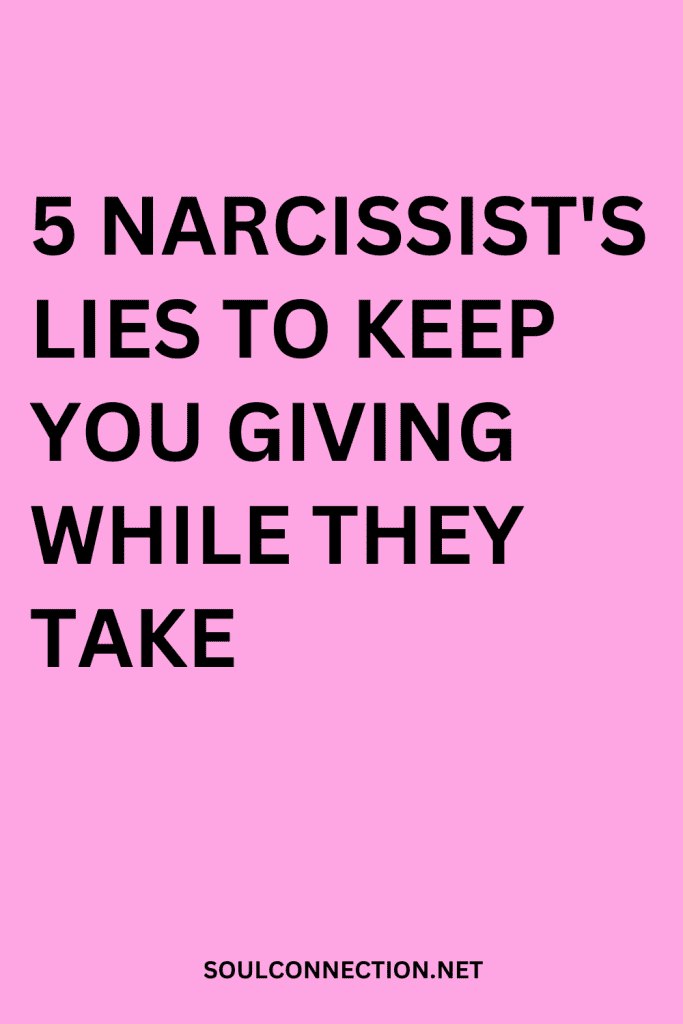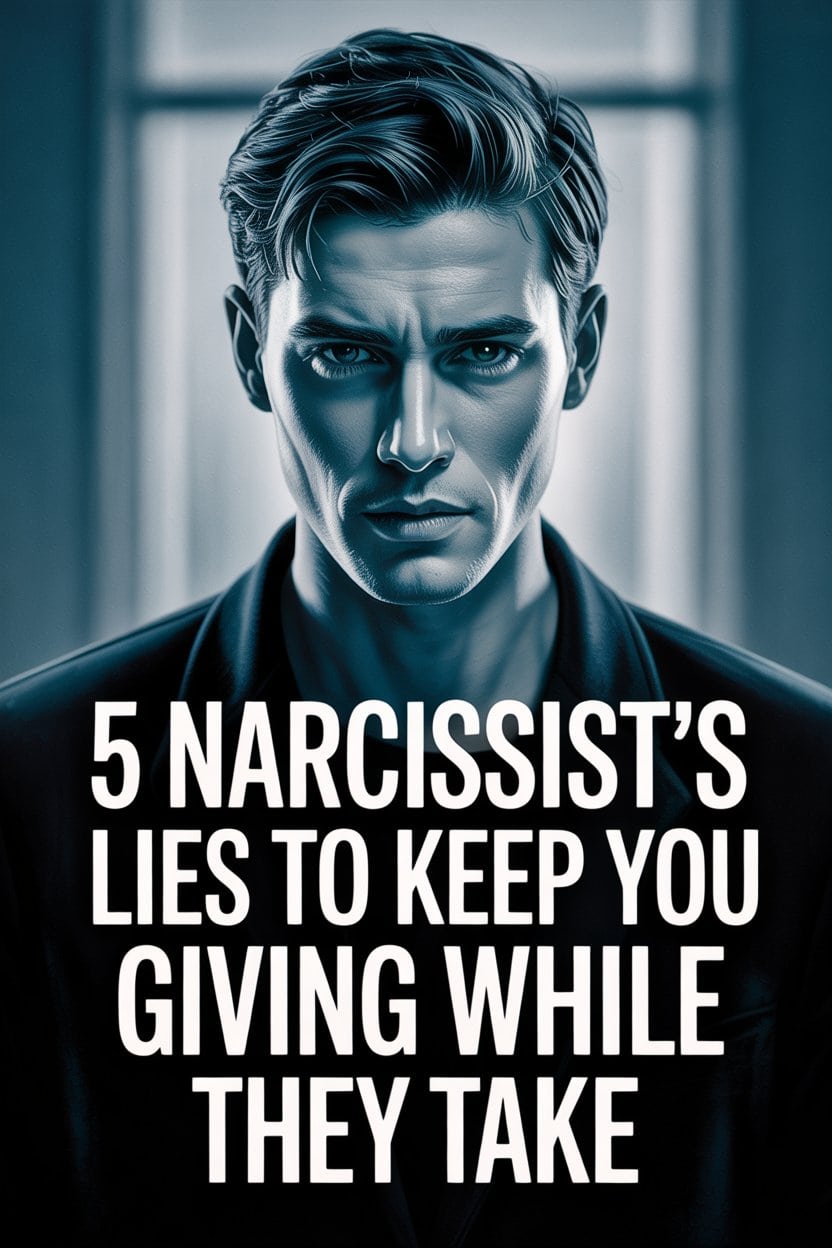Relationships with narcissists come with a unique set of challenges, not least the uncanny way they have you running on an emotional hamster wheel while they sit back, snack in hand, and enjoy the show.
If you’ve ever wondered why your gas tank is empty while theirs is always magically topped up, it might be time to check for these classic narcissist fibs—crafted to keep you giving, forgiving, and, well, exhausted.
1. The “You’re Overreacting” Classic
The narcissist’s favorite party trick: making you question your own sanity.
You’re voicing a totally valid concern—maybe a pointed question about that text from “old friend Jessica” who just happens to call at midnight—and suddenly you’re the irrational one.
“You’re overreacting,” they sigh, as if your emotional response to their late-night shenanigans is equivalent to setting fire to the curtains.
Here’s the rub: this little phrase is designed to retrain your internal compass. It encourages you to dial down your reactions, ignore your own discomfort, and hand the emotional remote control straight to them.
Result? They get to act as they please, free from the pesky nuisance of consequences.
Practical antidote: Trust your gut. If your insides are staging a full-on protest march, listen. Ask yourself not just whether your feelings are “too much,” but whether they’re actually the only rational response in a not-so-rational dynamic.
2. The “After All I’ve Done For You” Guilt Bomb
If you had a dollar for every time a narcissist played the martyr, you could probably fund your own reality show.
They’re the type to bring up that one time, five years ago, when they drove you to the airport, as proof of their undying devotion—never mind the emotional carnage since then.
“After all I’ve done for you,” they’ll sigh, conveniently ignoring the parade of things you’ve done for them (which, by the way, probably includes letting them eat all the chips and never replacing the bag).
This lie is about keeping the scoreboard permanently in their favor. If you start to question the balance of give and take, they break out their greatest hits album of past deeds, making you feel selfish for even imagining that your needs matter.
Counter-move: Keep your own mental ledger. Relationships aren’t transactional, but if you feel chronically indebted, that’s a red flag. You’re not applying for a loan every time you ask for kindness.
3. The “No One Else Will Love You” Whisper
Subtle, slippery, and designed to stick to your ribs, this one is less a shout than a whisper. “No one else will ever love you the way I do.”
It might even come disguised as a wounded confession after an argument, or a backhanded compliment when you stand up for yourself.
The message: You’re lucky to have them, because the rest of the world is lining up to reject you. This little chestnut keeps you clinging to the relationship out of fear, not love.
It’s a maneuver straight from the emotional hostage negotiation handbook.
Reality check: People who value you won’t need to scare you into staying. Love is not a limited edition sneaker drop.
Boost your own signal: Remind yourself of the friends who do love you, family members who have your back, and the versions of yourself you like best—especially the one who knows their own worth.
4. The “I’m Just Being Honest” Excuse
Every narcissist fancies themselves a truth-teller. They’ll say the cruelest thing imaginable, then wrap it up with a smug, “I’m just being honest.” (Spoiler: genuine honesty doesn’t come packaged with humiliation and a side of smug.)
This little gem gives them license to criticize your looks, intelligence, ambitions, or your mother’s lasagna, all while claiming moral high ground. Honesty becomes their get-out-of-jail-free card for disrespectful behavior.
But here’s the trick: The honesty only runs one way. Share your own truth—about how their “honest” feedback feels—and suddenly you’re “too sensitive,” “misinterpreting,” or “trying to start a fight.”
How to respond: Reframe honesty in your household. Kindness and tact aren’t optional extras. You can set boundaries like, “I’m open to feedback, not insults.” If they bristle, you’re probably on the right track.
5. The “I Promise I’ll Change” Encore
If you had a nickel for every time they promised to change, you wouldn’t need to split the rent. After an epic disagreement, or on the heels of some truly questionable behavior, the narcissist brings out their Broadway skills.
“I promise I’ll change,” they plead, complete with earnest eye contact and maybe even tears.
What follows is a short honeymoon period—cue flowers, foot rubs, or enthusiastic dishwashing—before old habits make a triumphant return.
These promises serve one purpose: to reset your patience meter and buy them time. It’s the emotional equivalent of hitting the snooze button on actual accountability.
What works better: Watch actions, not words. True change shows up on repeat, not just in the apology encore. If patterns keep looping back to the same old drama, it’s not a plot twist. It’s the entire show.
Changing Your Script
Spotting the lies is the first step; reclaiming your energy is the next. Narcissists are skilled at rewriting reality, but you have the editing rights on your own story. Challenge the narrative.
Start by checking in with yourself, daily if you need to. If a conversation leaves you feeling small, off-balance, or perpetually in the wrong, those feelings deserve space and respect.
Boundaries are your best friend here. They’re not walls to shut people out; they’re fences to keep the goats out of your garden.
It might feel awkward to set limits—especially if you’re used to making yourself the designated peacemaker—but boundaries are the only way to keep your emotional real estate from being overrun.
Talk to safe people. Narcissists love isolation. Sharing your experiences with friends, a therapist, or even a support group can help reality-check the mind games.
Fresh eyes—ones not dazzled by the narcissist’s smoke and mirrors—are invaluable.
And, hey, for anyone feeling like they’ve just read the script of their own relationship: there’s no shame in having fallen for the lies. That’s what makes them lies.
The real power comes when you start to spot them, call them out, and stop letting them run the show.
Getting Back to Giving—On Your Terms
Generosity isn’t the problem. Being a giving, loving partner is something to celebrate, not shut down. The danger comes when all the giving runs one way, fuelled by someone else’s slippery truths.
When you start spotting these lies, you reclaim your right to be generous without being drained. You get to choose when, how, and to whom you give—all without the script of guilt, fear, or endless one-sided promises.
And if you ever find your hands empty and your heart full? That’s the kind of giving that actually belongs in a love story. Not a narcissist’s highlight reel.


